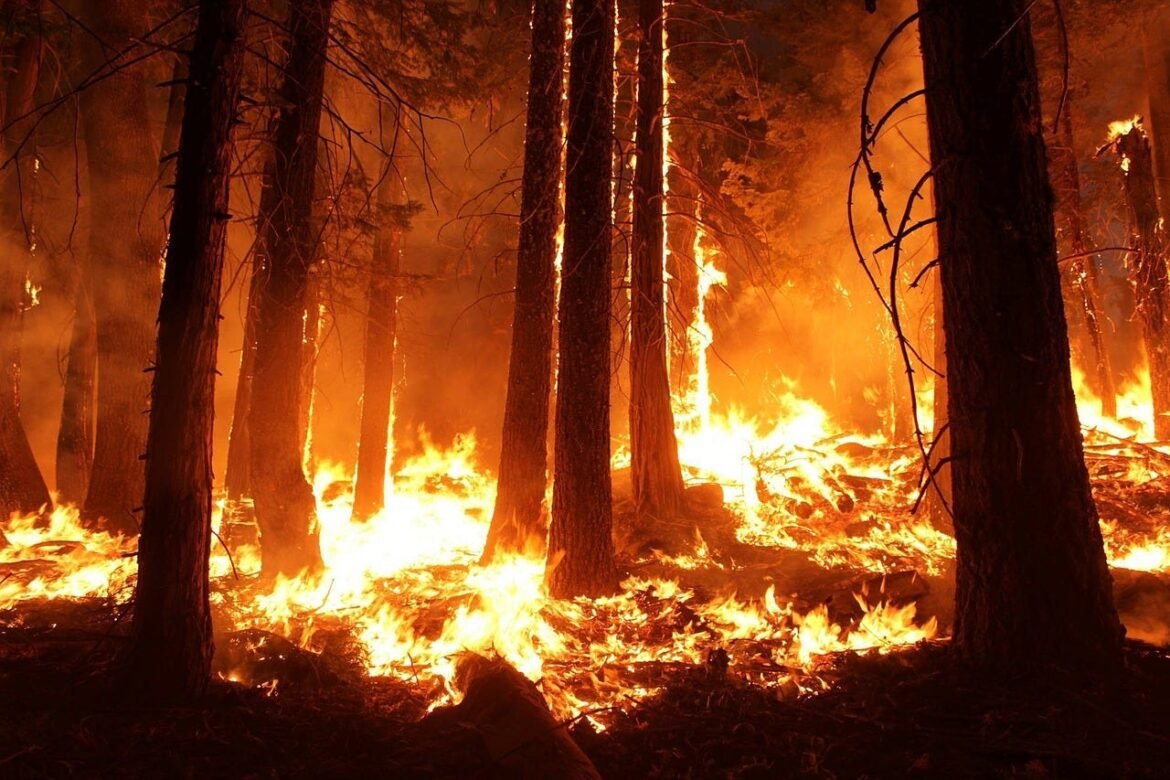Living in California means wildfires are a known and expected part of life. Yet, as I watch the devastation unfold from the latest fires, I find myself filled with two contrasting emotions: heartbreak for the victims and frustration at the seeming lack of preparation from our government.
The scenes from Los Angeles are described as “apocalyptic”—entire neighborhoods reduced to ash, families displaced, lives upended. And while I can’t help but grieve with those affected, I also can’t help but wonder: could some of this destruction have been mitigated?
A Cry for Accountability
Wildfires are inevitable in California’s dry, windy climate, but the extent of the destruction raises serious questions about our government’s role in prevention. The preventative measures are straightforward—clearing brush, maintaining firebreaks, ensuring water readiness—yet reports suggest that even these basics have been neglected.
Budget cuts and mismanagement seem to be at the root of the issue. In a state that collects billions in taxes, including funds specifically earmarked for fire prevention, it’s baffling that such critical measures have fallen by the wayside. The question isn’t just why wildfires happen but why, in a state prone to them, are we not better prepared?
As someone who lives close to Los Angeles, this hits home. I remember volunteering at a shelter after a wildfire a few years ago and being struck by the resilience of families who had lost everything. It’s painful to see these tragedies repeat themselves, especially when so much of the loss might have been preventable.
Californians have every right to demand accountability. Government officials must be transparent about where the money has gone and why basic fire mitigation strategies weren’t implemented. Wildfires are a part of our reality, but neglect doesn’t have to be.
Where Is God in This?
While I direct my frustrations at government policies and leadership, my questions for God take a different tone. In the face of such loss, it’s natural to ask spiritual questions: Why did this happen? Why were some spared while others lost everything?
The Bible doesn’t offer a formulaic answer to these questions, but it does offer a framework for response. In the Book of Job, when Job suffered immense loss, his friends initially got it right—they showed up, sat with him in silence, and mourned. But they faltered when they tried to explain his suffering, presuming to speak for God about things they didn’t understand.
As a Christian, I’m reminded that lament is not only allowed but invited. God welcomes our honest questions, our anger, and our sorrow. The Psalms are filled with cries of anguish, and Jesus Himself lamented on the cross, “My God, my God, why have You forsaken Me?” (Matthew 27:46).
The act of lament is not about doubting God’s goodness but about bringing our pain to the One who can handle it. God’s shoulders are broad enough for our grief, and His heart is big enough to hold our tears.
For those who have lost homes, loved ones, or their sense of security, I pray they feel the tangible presence of God’s grace. As Isaiah 61:3 says, God promises to give His people “a crown of beauty instead of ashes, the oil of joy instead of mourning.” While the physical ashes remain, we can trust in His power to restore what’s been lost.
Grace in Action
In times of tragedy, we also have the opportunity to be God’s hands and feet. Whether it’s donating to relief efforts, offering a place to stay, or simply sitting with someone in their grief, we can extend the same grace and compassion we’ve received from God.
If you’re looking to help, consider donating to organizations like the Red Cross or local churches organizing relief for fire victims. Volunteering at shelters or even reaching out to someone affected can make a tangible difference.
Let’s also pray for those impacted by this tragedy—that they would find comfort, provision, and hope. Pray for wisdom for our leaders and accountability in how resources are managed. And let’s ask for God’s mercy on our land, that He might protect us from further devastation.
A Call for Action and Reflection
This wildfire season has left me with two pressing questions: Why were preventative measures neglected, and how can I, as a Christian, respond to the pain around me?
While I can—and should—hold human leaders accountable, I also trust in a divine Leader whose purposes are higher than mine. In the ashes, I choose to believe that God’s grace can bring healing, hope, and, someday, beauty.
As Hudson Taylor once said, “His grace is sufficient.” That grace doesn’t mean the pain will vanish, but it means we don’t have to carry it alone. Let’s trust that grace for the victims, the survivors, and even ourselves as we wrestle with the “why.”
Lord, let Your grace be felt by all those affected.
Conclusion
While the destruction is overwhelming, we can trust in a God who brings redemption and hope. This tragedy is a call for us all to work together, to pray for our communities, and to ensure future generations don’t face the same preventable losses.
Together, let’s rebuild with accountability, compassion, and faith.



